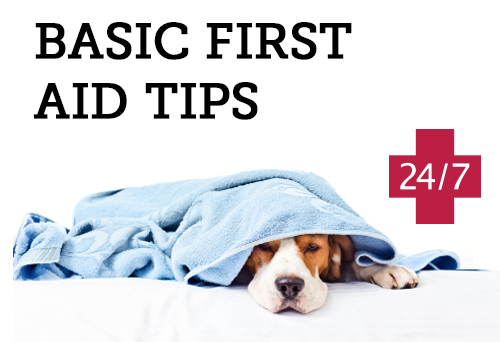3 Easy Steps to Set Up Your Appointment
- Fill out the form.
- We will call you within one business day to confirm.
- Show up and receive topnotch care for your pet.
If you need to change your appointment, give us a call at least 24 hours before your scheduled time.
Important Note:
Do not use the appointment form in case of an emergency. Call or visit us right away.
If your pet has a medical emergency, please telephone us immediately at 914-941-4904 to schedule an appointment. Our dedicated team of veterinarians and technicians are available around the clock to provide expert care for your pet.
PLEASE CALL FOR AVAILABILITY. APPOINTMENTS ARE REQUIRED, EVEN IN THE CASE OF AN EMERGENCY.
Our address is: 513 North State Rd. Briarcliff Manor, NY 10510
Click here for directions to our location.

Basic First Aid For Pets
If you suspect something is wrong with your pet, call us immediately. We are always here for you. But, sometimes its good to have the tools to collect some information before we see you. Here are just a few first aid tips to help you get started.
HOW TO TAKE YOUR PET’S TEMPERATURE
Gently insert a rectal thermometer, lubricated with Vaseline or K-Y Jelly, 1-2 inches into anus beneath tail. Ear thermometers are also available for pets. Normal readings are 101-102º F. A high temperature may mean your pet has an infection. However, heavy exercise, excitement or laying in the sun on a hot day can cause false elevations. Subnormal readings can indicate weakness and lethargy, but don’t be fooled by cold weather or after-nap chills.
EVALUATING YOUR PET’S GUM COLOR
Lift pet’s lip and look at the tongue and gum above upper teeth. It should be pink to red. The gum should blanch to white and return to pink when pushed, released, and observed. Poor blood circulation is indicated if it takes more than two seconds to return to pink. Pale or white gums can mean anemia or shock. Yellow gums are a sign of liver disease or anemia caused by red blood cell destruction. Very red painful gums point to gingivitis. This test is easy to perform unless your pet has naturally black gums or dislikes having its mouth manipulated.
MEASURING YOUR PET’S PULSE
Softly press your fingertips against upper inner thigh of pet. You can also place your hand against chest behind left front leg. The normal resting dog or cat heart beats between 80 and 150 times/minute. Rapid heartbeats can indicate pain, heart disease or shock, especially if pulse is weak. If pet faints or has seizures, slow beats can also point to disease. As with temperature, levels are lower with rest and higher with exercise and excitement.
IF YOU NEED TO MUZZLE YOUR PET
Use a strip of soft cloth, rope, necktie, or nylon stocking. Wrap around nose, under chin and tie behind ears. Care must be taken when handling weak or injured pets. Even normally docile pets will bite when in pain. Allow pet to pant after handling by loosening or removing muzzle. Do not muzzle in a case of vomiting. Cats and small pets may be difficult to muzzle – a towel placed around head will help control small pets.
The Animal Health Center at the Veterinary Village is open for emergencies 24 hrs a day, 365 days a week.
